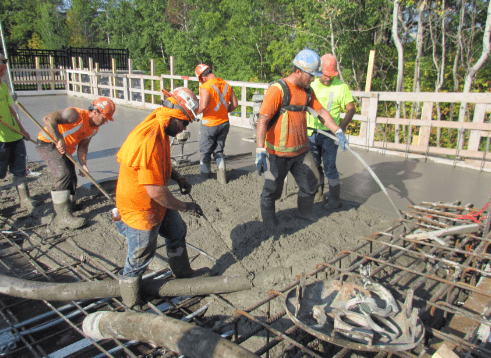From Concrete To Steel: Understanding The Different Types Of Construction Materials Testing

The construction industry is a fascinating and continuously evolving field that demands precision, accuracy, and safety. One of the most critical aspects of building any structure is selecting the right materials and ensuring their quality. This is where construction materials testing comes in handy. It involves testing different construction materials to ensure they meet specific strength, durability, reliability, and safety standards.
What is Construction Materials Testing?
It is a process of testing various materials used in construction. CMT aims to ensure that these materials meet the required standards for quality, strength, and durability. This type of testing involves examining different components such as concrete, steel, soil, or asphalt using various techniques.
It prevents structural failures by identifying potential issues early in the building process. By analyzing and evaluating the properties of each material component, engineers can determine if they are suitable for use in construction projects.
Moreover, this type of testing plays a vital role in ensuring compliance with regulatory requirements set by local authorities or industry organizations. It assures that structures adhere to safety regulations and will stand up against harsh weather conditions over time.
It is an essential aspect of any construction project because it helps guarantee that all materials used are safe and comply with legal or regulatory requirements while offering long-term durability and reliability.
Types of Construction Materials Testing
One type of construction material testing is mechanical testing. This involves measuring a material’s strength, hardness, elasticity, and other properties through various tests, such as tension and compression.
Another important test is the chemical analysis which evaluates elements like sulfur content or pH levels in different materials used for construction projects. Chemical analysis helps determine if harmful contaminants are present within the raw material that could impact its structural integrity over time.
Durability testing is also an essential component of construction materials testing. Durability tests examine how well a particular substance holds up under constant pressure or exposure to harsh environments like windstorms or earthquakes.
Proper planning and execution of these types of construction material tests by experts in their respective fields will help ensure safe buildings for occupants while also reducing maintenance costs over time, primarily due mainly because preventive measures were taken at an earlier stage itself, thus preventing large-scale damages which may have resulted otherwise.
How is Construction Materials Testing Used in the Industry?
One critical application of construction materials testing is during the design phase. Engineers can select the most suitable and cost-effective building material for a particular project by analyzing different material properties such as strength, permeability, and durability. Additionally, these tests help identify potential issues with using certain types of building materials.
During construction, on-site tests are conducted to ensure all specifications are met. This includes checking concrete mixtures’ compressive strength or verifying steel reinforcements’ placement accuracy. Testing also helps detect defects early on to address them before they become more severe problems.
Post-construction testing is essential to guarantee long-term durability and safety. Using non-destructive evaluation techniques or structural load tests provides valuable information about how buildings perform over time under varying conditions.
Conclusion
We hope now you learn about construction materials testing. By understanding the different types of construction materials testing, builders can make informed decisions about which materials to use for their projects. This ensures safety and saves time and money in the long run.
